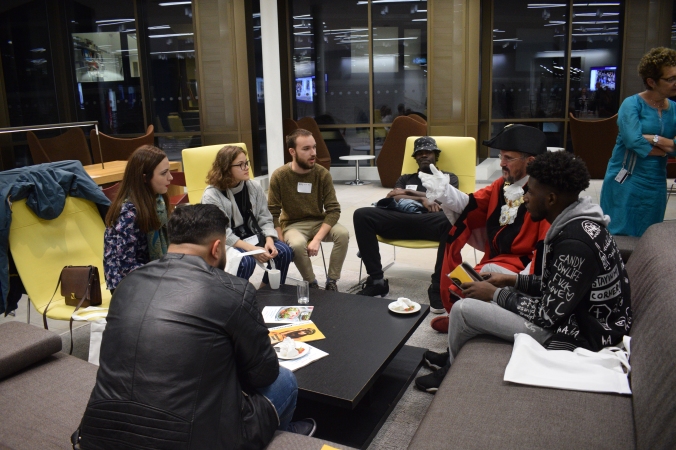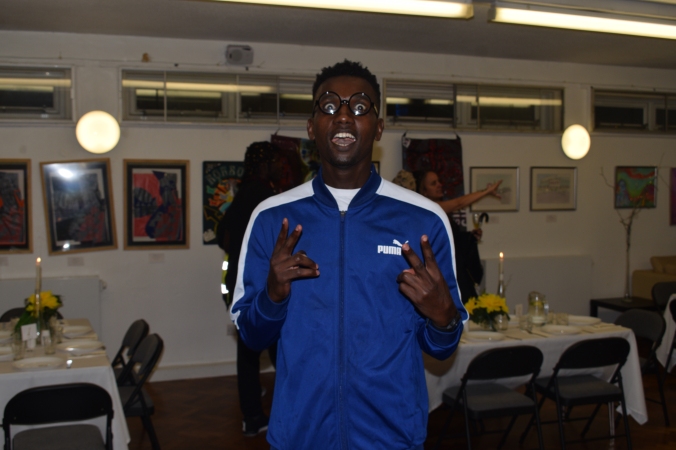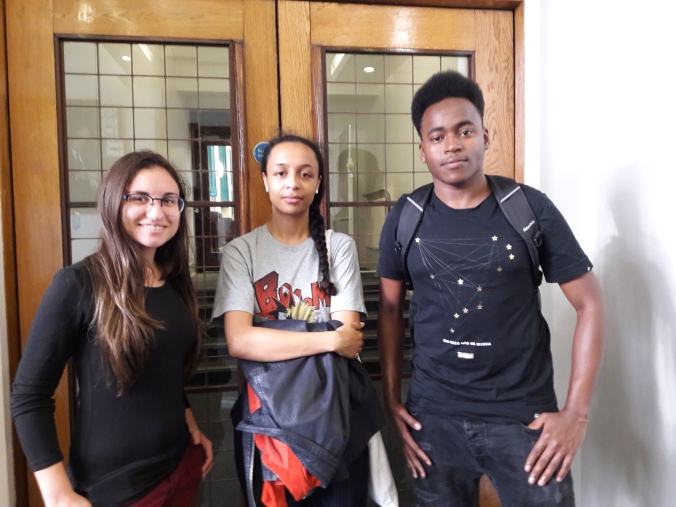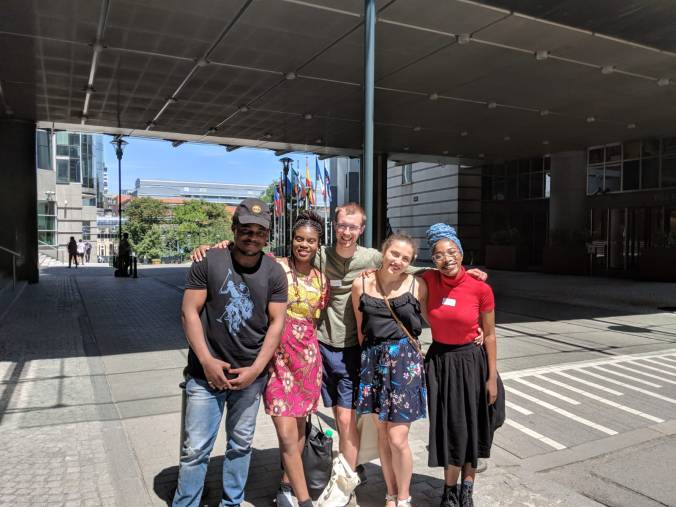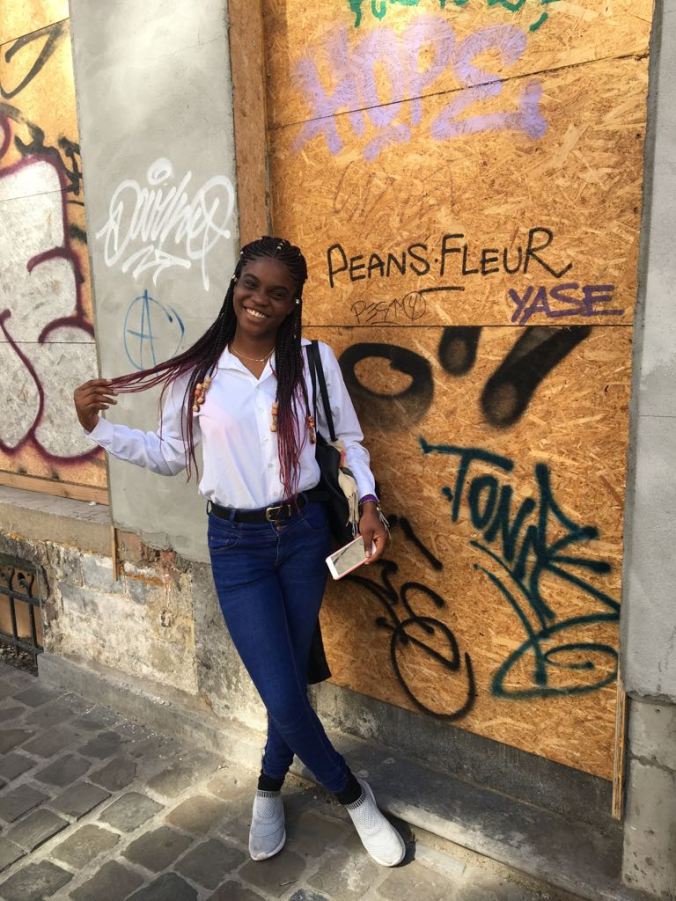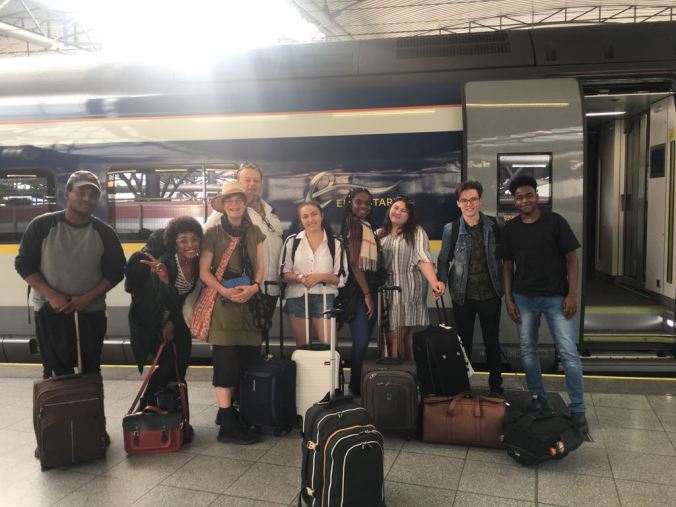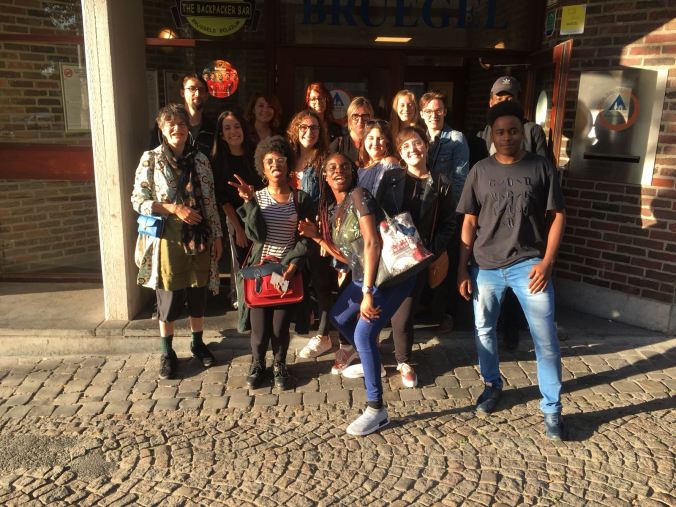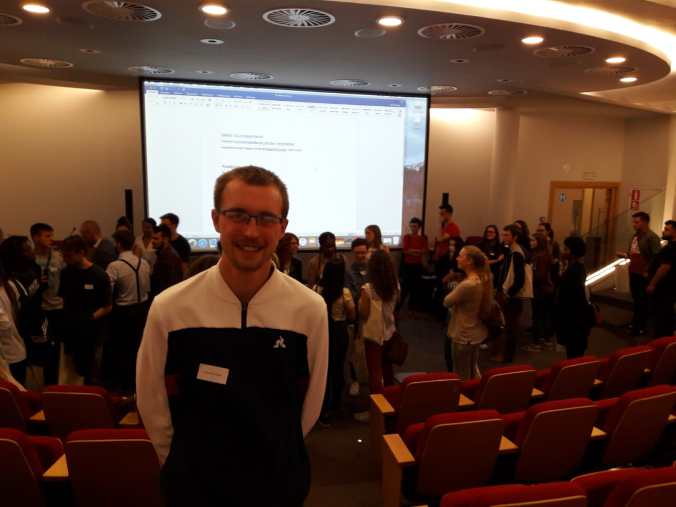Is Brussels unique in its growing gap between those who help migrants by offering homestays, and those who’d lock them up or send them back. Or is it just another European city and country struggling to deal with the migrant crisis? Matt Hardy from Engage London takes an overview
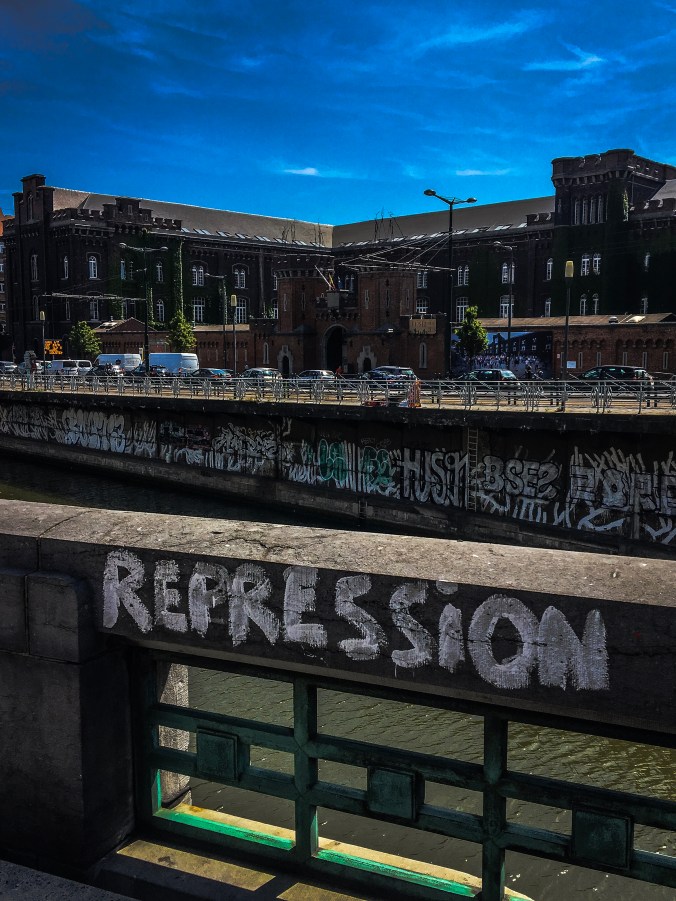
Telling graffiti on the Military School in central Brussels which is now being used to house refugees. Photo inspired by workshops during the Engage Europe summer school at IHECS (c) Engage London/Matt Hardy
Brussels is the capital of Belgium, the home of European Politics and the famous Manneken Pis fountain. It’s also home to a refugee crisis, rising homelessness and a growing divide between rich and poor.
A cornerstone of the EU rule book is that an asylum seeker should seek protection from the first EU country they arrive at, and not travel onwards — a phenomenon known as “secondary movement”. (Financial Times)
But who and how should be helping? In Brussels, the home city of European politics, locals are currently breaking the law to help undocumented migrants. Thanks to Facebook – Platforme Citoyen (which has 47,000 members) every evening at the Parc Maximilien, near the Gare du Nord station, up to 400 migrants gather wait for the hundreds of Belgians who will offer them an overnight home stay. They do this to outwit officials after mass arrests of undocumented people sleeping in the park. It’s been happening since the Calais jungle in France, where 6,000 migrants lived, was shut down. Most of these asylum seekers don’t want to stay in Belgium, their goal is to reach the UK.
This film from Aljazeera explains more.
https://www.aljazeera.com/indepth/features/brussels-refugee-bnb-180103082106214.html
In Brussels this citizen initiative may change as soon as a new detention centre is built as the right wing coalition government’s plan is for these migrants to be housed there.
Nearly 500 miles east of Brussels is Berlin, the capital city of Germany. Germany is home to a conservative coalition government, led by Angela Merkel, which is currently on the verge of reshaping the European viewpoint on refugees. On the same day that the Engage London team, which included two former child refugees, left Brussels, Merkel was at the European Parliament arguing the case for sending asylum seekers back to their entry point into Europe, shifting the political crisis south.
Whose responsibility?
Already the southern European countries of the continent such as Italy and Spain are on the receiving end of the countless refugee boats that are entering Europe from north Africa.
The inhabitants of the boats? Those fleeing persecution, war and those searching for a better life from their war-torn and/or intolerant nations such as Syria, Iraq, Eritrea, South Sudan and Ethiopia.
Countries on the Mediterranean sea are beginning to close their boarders to such ships, believing that countries further inland aren’t doing their share of offering asylum.
And they are right. Recently Merkel and her prop-up coalition (Christian Democratic Union with the smaller Christian Social Union)announced a new migrant plan that includes transit zones (detention centres in all but name) in southern Germany, designed to deport “ineligible asylum seekers”. These are the very sort of centres the European Commission condemned Donald Trump for opening in the US which deliberately split babies and children from their parents and family members.
New direction
Detention centres in Germany will forcerefugees to go elsewhere. A panicked Austria (which took in many refugees during the Bosnian conflict of 1992-95) already has plans to close their borders to stop the refugees from settling in the land-locked state. This would go against the free movement of people policy valued so highly by the European Commission, and they are unlikely to be the last country to put in place such measures.
The culmination of these decisions? The refugees will head for France, Belgium and Britain because other countries are closed.
It’s clearly more complex than what’s outlined above. But the point is clear; Germany, Austria and Italy have already put measures in place to deter migrants. Will Belgium do the same? Brussels is a city of hope and prosperity to some, and the final destination for others but to everyone, it’s a city that needs to do more to protect its growing diverse population.
- See the Facebook page, Citizen Hosting Platform (Platforme Citoyen) which has https://www.facebook.com/plateformerefugiesbxl/ and follow the hashtag #HelpIsNoCrime
- Keep up to date with Matt Hardy via twitter @matthardyjourno and @thepoliticosuk
Engage London has approx 27 members – a lucky eight were able to attend the Brussels summer school at IHECS from 24-28 June. They were Pilion Trust’s Rahim Amin, Favour Ekengwu, Naomi Gahie, Charlie Tshibangu and City’s journalism undergrads Matt Hardy, Alun Macer-Wright, Diana Serenli, Meagan Walker. Big thanks to Engage Europe for creating this opportunity.
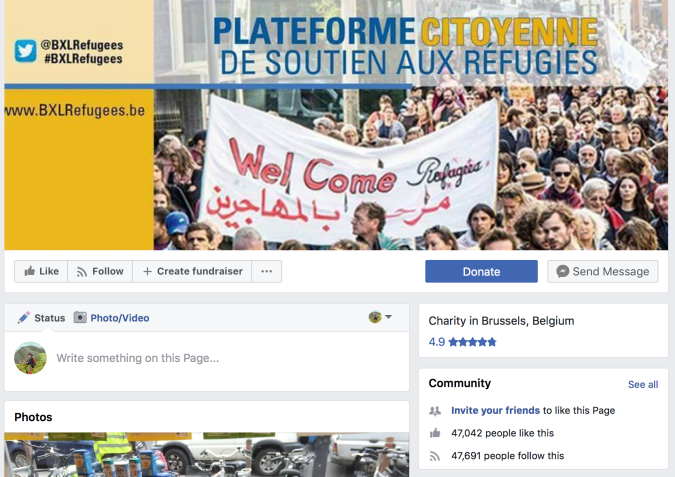
The Facebook group that enables Belgians to offer homestays to migrants.



